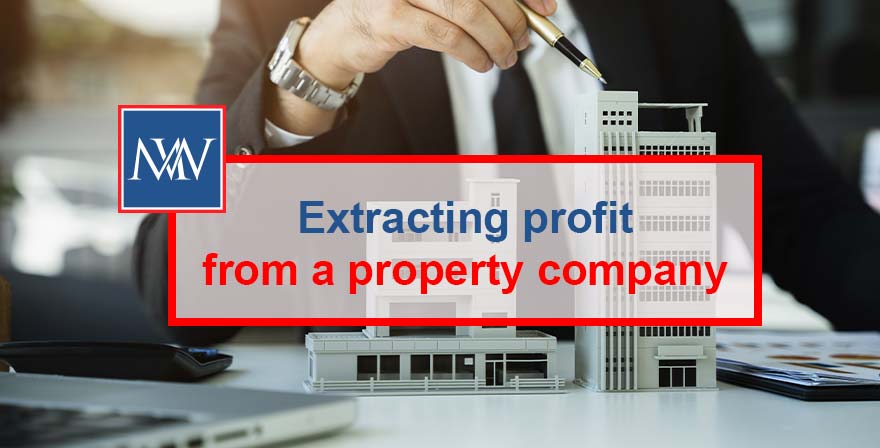
Extracting profit from a property company
Recent tax changes, in particular the interest restriction for unincorporated property businesses with residential lets, have resulted in more landlords operating via a property company. Running a property business through a company has a number of advantages – the rate of corporation tax paid on the profits will usually be less than the rate of income tax that would be paid by an unincorporated landlord and interest and finance costs in relation to residential lets can be deducted in full when calculating the profits chargeable to corporation tax.
There are downsides too – the company does not have a personal allowance so tax is payable from the first pound of profit. Also, if the landlord wishes to use the profits personally outside the company, they will need to be extracted. This may trigger tax and National Insurance liabilities.
Tax-efficient extraction strategy
If the landlord has not already used his or her personal allowance, a popular and tax-efficient profits extraction strategy is to take a salary equal to the personal allowance, which for 2023/24 is set at £12,570. At this level, no employee’s National Insurance is due. If the National Insurance employment allowance is available, there will be no employer’s National Insurance to pay either. However, in the absence of the allowance (as will be the case if the company is a personal company where the landlord is the director and sole employee), there will be a small amount of employer’s National Insurance to pay – for 2023/24 the NIC cost will be £478.86 where a salary of £12,570 is paid. Paying a small salary of between £6,396 and £12,570 has the further benefit of securing a qualifying year for state pension purposes for zero contribution cost.
Once the landlord’s personal allowance has been used up, it is generally more tax efficient to extract further profits as dividends. However, the company must have sufficient retained profits from which to pay the proposed dividends. Further, where there are multiple shareholders with the same class of share, dividends must be paid in proportion to shareholdings (although this restriction can be overcome by having an alphabet share structure). All individuals have a dividend allowance, set at £1,000 for 2023/24. Dividends sheltered by the allowance are tax-free; however, the allowance does form part of band earnings. Once the allowance (and any remaining personal allowance) have been used, dividends (which are treated as the top slice of income) are taxed at 8.75% where they fall within the basic rate band, at 33.75% where they fall within the higher rate band and at 39.35% where they fall within the additional rate band.
The company can also consider making pension contributions on behalf of the landlord. These are deductible in computing the company’s taxable profits.
Optimize your business’s profitability with a profit margin calculator.
For more information on extracting profit from a property company, Book a free consultation
Need Accountancy Support?
For information on bespoke training, or if you have any other questions for Makesworth Accountant, please fill in your details below




















 150
150